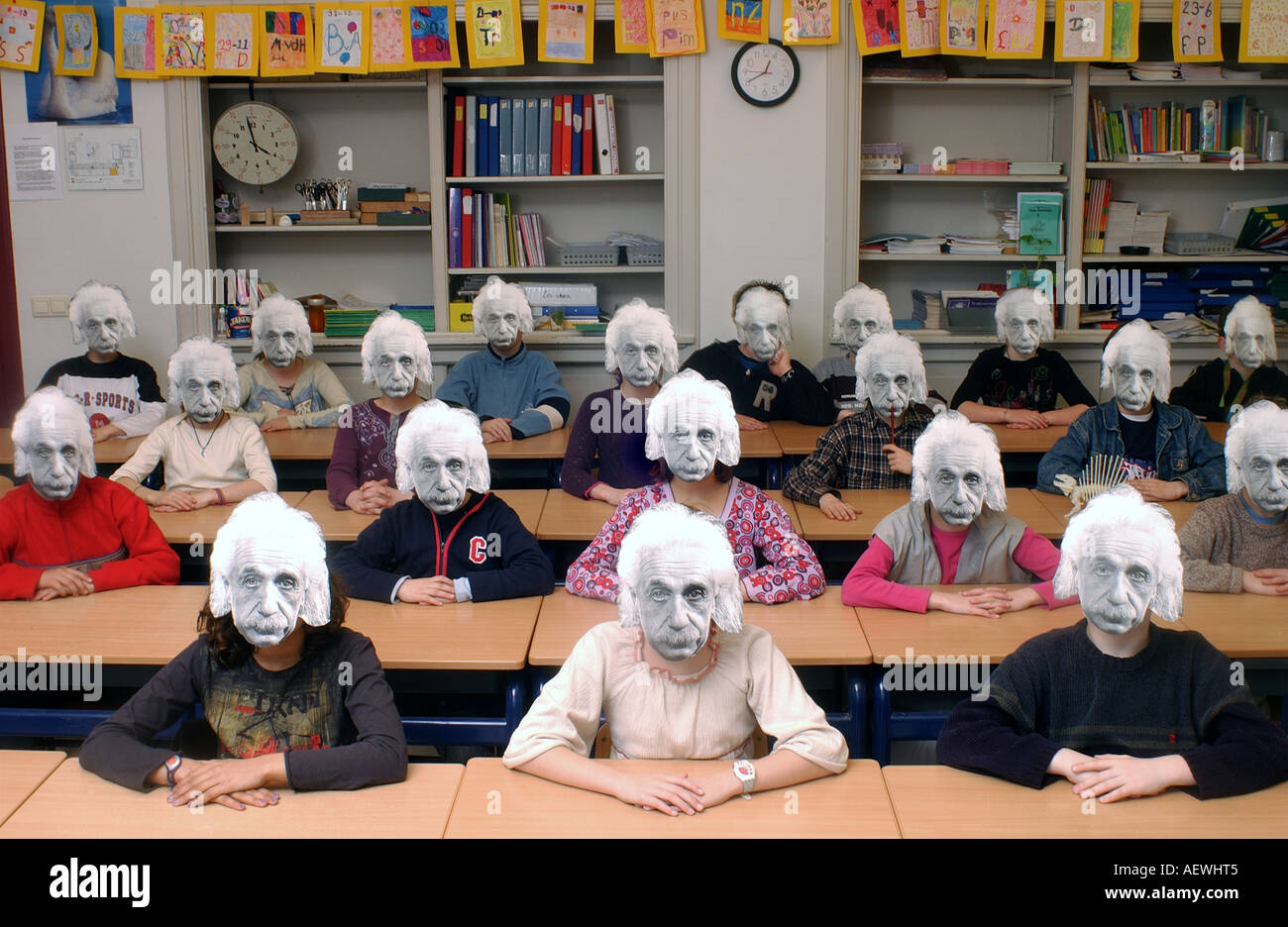Classroom with young einstein masked kids

Image details
Contributor:
Theo Alers / Alamy Stock PhotoImage ID:
AEWHT5File size:
51.5 MB (1.8 MB Compressed download)Releases:
Model - no | Property - noDo I need a release?Dimensions:
5257 x 3425 px | 44.5 x 29 cm | 17.5 x 11.4 inches | 300dpiMore information:
A class of primary school kids looking like Albert Einstein. No photoshop involved. Intelligence has been defined in many different ways including, but not limited to, abstract thought, understanding, self-awareness, communication, reasoning, learning, having emotional knowledge, retaining, planning, and problem solving. Intelligence is most widely studied in humans, but has also been observed in animals and in plants. Artificial intelligence is the simulation of intelligence in machines. Within the discipline of psychology, various approaches to human intelligence have been adopted. The psychometric approach is especially familiar to the general public, as well as being the most researched and by far the most widely used in practical settings.[1] An intelligence quotient, or IQ, is a score derived from one of several standardized tests designed to assess intelligence. The abbreviation "IQ" comes from the German term Intelligenz-Quotient, originally coined by psychologist William Stern. When modern IQ tests are devised, the mean (average) score within an age group is set to 100 and the standard deviation (SD) almost always to 15, although this was not always so historically.[1] Thus, the intention is that approximately 95% of the population scores within two SDs of the mean, i.e. has an IQ between 70 and 130. IQ scores have been shown to be associated with such factors as morbidity and mortality, [2] parental social status, [3] and, to a substantial degree, biological parental IQ. While the heritability of IQ has been investigated for nearly a century, there is still debate about the significance of heritability estimates[4][5] and the mechanisms of inheritance.[6] IQ scores are used as predictors of educational achievement, special needs, job performance and income. They are also used to study IQ distributions in populations and the correlations between IQ and other variables. The average IQ scores for many populations have been rising at an average